The Ministry of Health is urging Fijians to be aware of the symptoms of meningococcal disease and seek medical care early if you have them.
This comes after a man in Nadi died from the disease on Tuesday.
According to the Health Minister, Dr. Ifereimi Waqainabete, the outbreak of meningococcal C was declared over in December 2018, however, the Ministry stated then, and continues to emphasize, that the public must remain aware of symptoms as they can be produced by severe disease caused by other organisms that normally are in circulation in Fiji.
Symptoms of the meningococcal diseases especially for older children and adults can include a sudden fever, vomiting, headache and stiff neck and or backache.
Other symptoms include nausea, eyes sensitive to light, confusion and a rash, red and or purple spots on the skin.
For babies, symptoms can be difficult to notice, however you should be alert for high fever, unusual crying, refusing to eat or drink, vomiting, floppy and or drowsy, changes in sleeping patterns, seizures or fits and a rash, red and or purple on the skin.
Dr. Waqainabete stresses that this is a deadly disease and if a person has the signs and symptoms of meningococcal disease, they will require urgent medical treatment.
The Health Minister notes that before the outbreak last year, meningococcal disease was very rare in Fiji (0-10 cases per year), and caused mainly by meningococcal B.
The mass vaccination campaign he says for all 1-19 year olds targeted meningococcal C because this was causing the outbreak.
Therefore, the Ministry still expects cases of meningococcal B, but at normal low rates.
He says, they also still expect cases of meningococcal C in people who did not receive the vaccine because they were outside the target age range of 1-19 years.
This age range was chosen because less than 90% of cases during the outbreak were people aged 19 or younger.
The mass vaccination campaign Dr. Waqainabete says has prevented many more Fijian children getting sick, and dying, from meningococcal C this year.
With time, he says the indirect protective effect of the mass vaccination will be seen even in the unvaccinated age groups.
Because of herd immunity, the mass vaccination of 1-19 year olds will also protect everyone else.
This has been seen in other countries that have conducted mass vaccination for meningococcal C (e.g. Australia).
What does the community need to do?
1) Continue to be alert for the signs and symptoms and go immediately to the nearest health facility if you or your loved ones have any of these symptoms.
2) Practice good hygiene to help prevent the spread of the bacteria.
3) Ensure that everyone between the ages of 1-19 receives the meningococcal C vaccine.
Meningococcal Disease Information Sheet
• Meningococcal disease is a life-threating disease caused by the bacteria Neisseria meningitidis. It can cause infections in the lining of the brain (meningitis) and in the blood (meningococcemia), or both. These conditions are very serious and can be deadly.
Meningococcal disease is very serious but can be treated if detected early
• Meningococcal disease can only be treated at a health facility with antibiotic medication (medicines that kills bacteria in the body) specifically used for this disease. People with meningococcal disease will be admitted to hospital.
• Identifying the symptoms and seeking urgent medical treatment at a health facility is critical and will give a sick person the best chance of survival. In previous outbreaks worldwide, up to 50% of people who got the disease died when they did not get treatment.
• Most people who get the disease, and are treated appropriately, will recover fully, however 8-12% will still die, and around 20% will have permanent disabilities (e.g. severe brain damage).
• If you notice signs and symptoms of this disease, you must urgently visit your nearest health facility.
• A person may start to feel sick within 3 to 7 days after coming in contact with the bacteria.
• It is critical that everyone knows the signs and symptoms of meningococcal disease, so they can seek immediate medical treatment if they suspect meningococcal disease.
Meningococcal Disease is spread from Person to Person
• The meningococcal disease bacteria are not easily transmitted but are spread from person to person via transfer of saliva or spit. This can happen when a person with the bacteria coughs on an uninfected person, or deeply kisses an uninfected person on the mouth. It may also spread through the sharing of drinks from the same glass/cup/water bottle or bowl e.g. kava, or taki alcohol at a nightclub.
• Babies and children under the age of 5 frequently put things into their mouths, therefore they are at higher risk of getting the bacteria.
• Not everyone who has the bacteria will get the disease. Approximately 10-20% of the general population will carry the bacteria at the back of their nose and mouth from time to time, but will not have symptoms. This is because the bacteria need to get into the bloodstream to cause the disease.
Certain People are at Increased Risk for Meningococcal Disease
• Anyone can get meningococcal disease. However, babies, children, teenagers and young adults are the most at risk of getting meningococcal disease.
• There is an increased risk of meningococcal disease spreading in boarding schools and between people living within the same house.
• People who have certain medical conditions that weaken their immune systems are also at increased risk.
Prevention
• Practicing proper hygiene can help prevent the spread of the disease
– Cover your mouth and nose with tissue or handkerchief when coughing and sneezing
– Dispose tissue in the bin, wash handkerchief daily with soap and water
– After coughing or sneezing, wash your hands with soap and water
– Don’t share eating utensils, cups/glasses/water bottles, drinks at social gathering (taki), cigarettes, or kava bowls.
SOURCE: FBCnews.com
